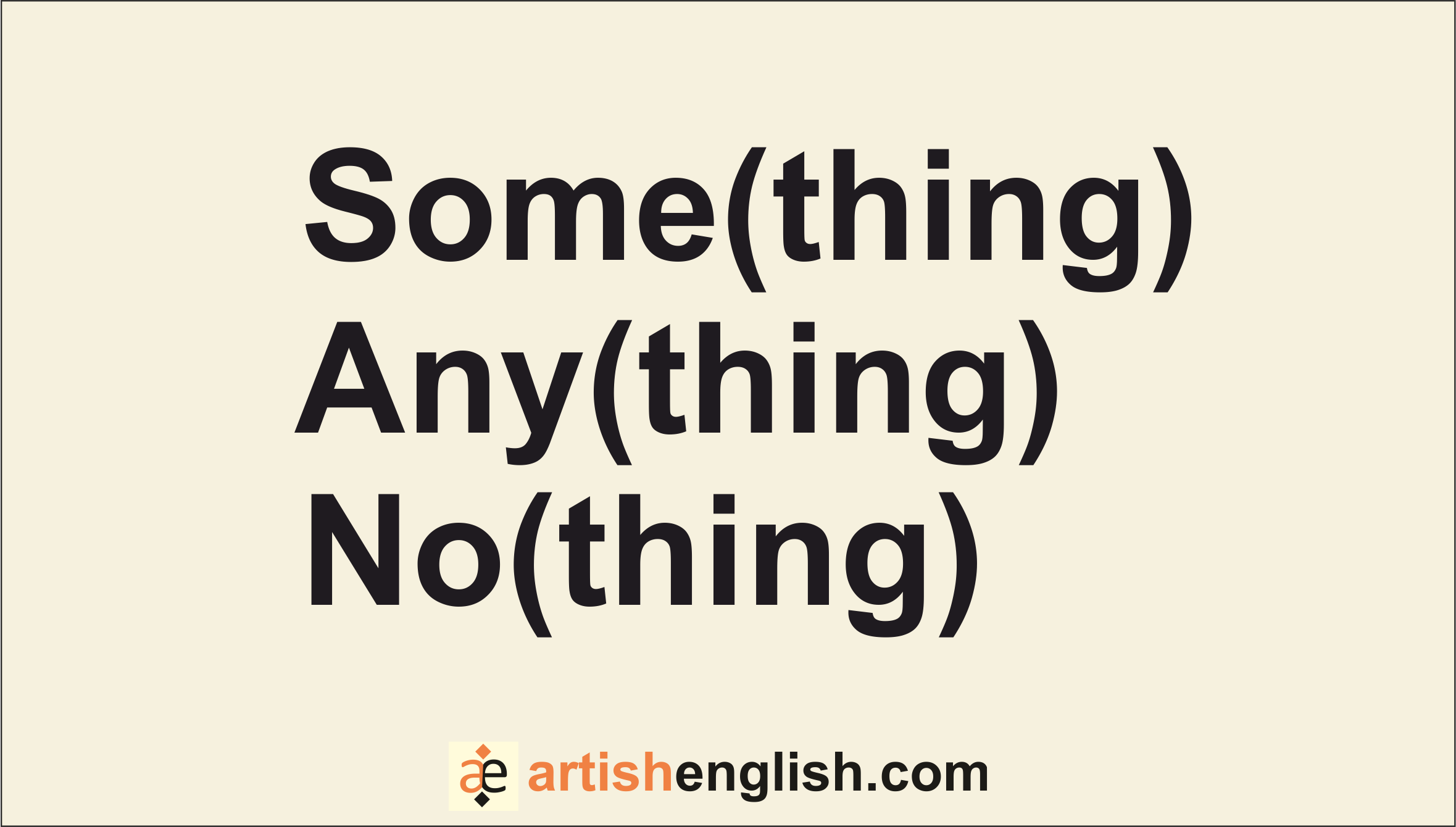Today we are going to have a look at such words as some(thing/one/body), any(thing/one/body), no(thing/one/body). How and when do we use them?

In statements, you should use some. In questions and negative use any
BUT in questions which anticipate a positive response use some
This all can be illustrated by the following simple scheme:
(+) some
(-) any__ (thing)
(?) any__ (thing)
(+?) some
Examples:
(+) There is some honey on the shelf.
(+) There are some jars of honey on the shelf.
(-) There isn’t anything in the fridge.
(-) There isn’t any cake in the fridge.
(-) There aren’t any cakes in the fridge.
(-) I don’t want any more cake.
(?) Is there anything in the fridge?
(?) Is there any cake in the fridge?
(?) Are there any cakes in the fridge?
(+?) Would you like some (more) tea?
(+?) Did you say something?
(+?) Can you tell me something about yourself?
Also:
Instead of
(-)There isn’t anything in the fridge
You can also say:
(-)There is nothing in the fridge
Thus,
(-) There isn’t any cake in the fridge. = (-) There is no cake in the fridge.
(-) There aren’t any cakes in the fridge. = (-) There are no cakes in the fridge.
(-) I don’t want any more salad. = (-) I want no more salad
So the complete version the scheme will look like
(+) some
(-) any__(thing) = (-) no__(thing)
(?) any__(thing)
(+?) some
You can practice this grammar point by playing the Battlefruits Game
P.S.
Some additional point:
When we talk about objects we use thing (something, anything). When we talk about people we use one or body (someone, anybody)